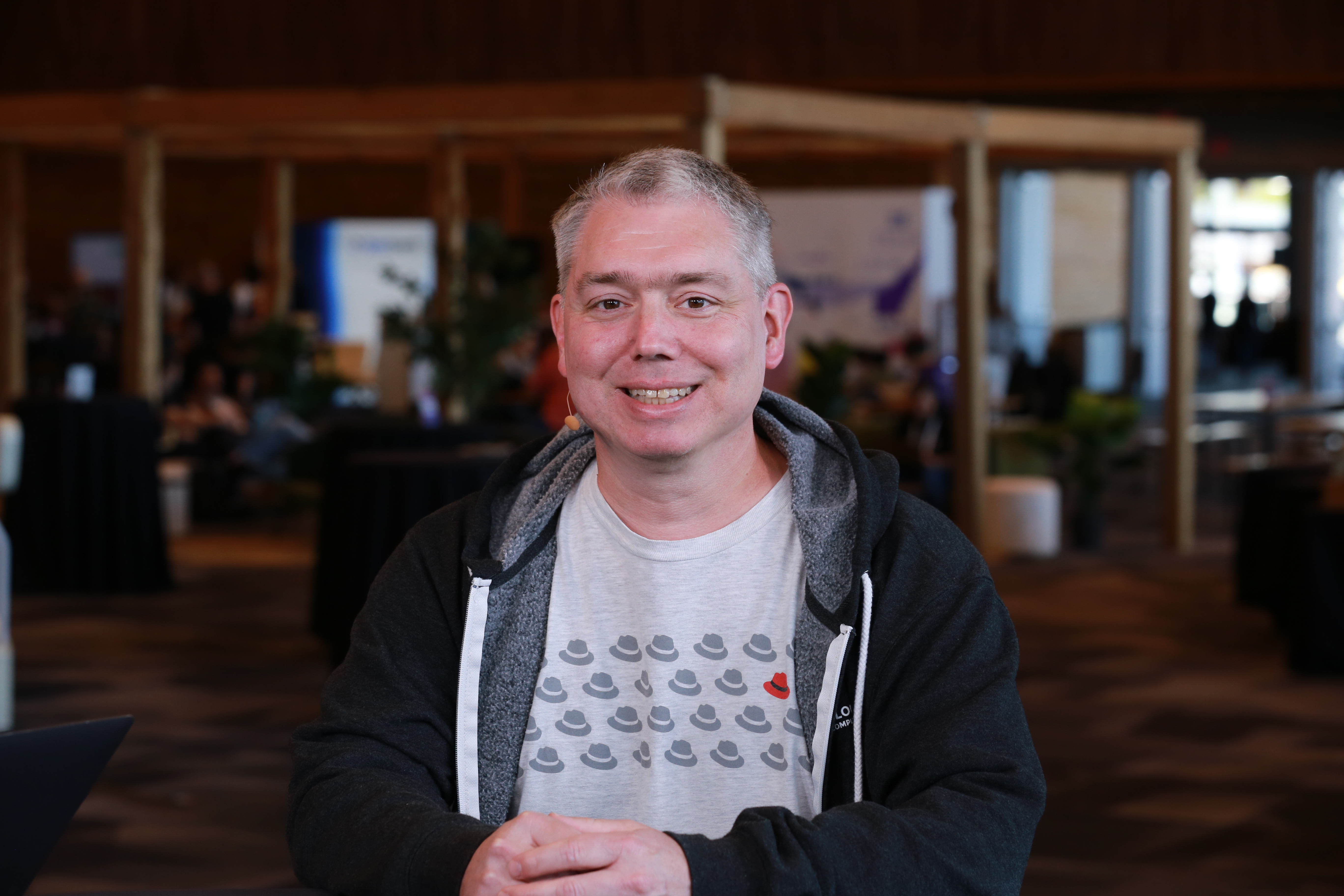 AI
AI
 AI
AI
 AI
AI
At its heart, tackling climate change is a data problem. It requires the right data, the right infrastructure and the right tools to make sense of it all, according to Erik Erlandson, senior principal software engineer at Red Hat Inc.
Open source is proving to be a key player in navigating this data deluge.
“The actual regulatory climate is evolving fast,” said Erlandson (pictured). “Almost every quarter, there’s increased requirements for companies to report their impacts. In order to do that, you have to be able to align financial institution investments with the results of these reports.”
Providing these insights depends on integrating various datasets, which can be quite complex, according to Erlandson.
“There’s three or four entirely different data sets you need to bring together in one place to provide these kinds of answers. And they’re all coming from different places,” he added.
Erlandson spoke with theCUBE industry analyst John Furrier and guest analyst Rob Strechay at Open Source Summit NA, during an exclusive broadcast on theCUBE, SiliconANGLE Media’s livestreaming studio. They discussed the role of open source in tackling the challenge of climate change.
To meet the demands of federated data needs, Red Hat is turning to data mesh architectures. But the choice of data mesh is dependent on the needs of the specific project, according to Erlandson.
“In our case, we are using Trino, because it is actually designed to provide this kind of federation,” he said.
Despite the challenges, Erlandson identifies the opportunity for transparency in the face of greenwashing — asserting without proof that a company’s products are ecofriendly or have a more significant environmental benefit than they truly do. With the open architecture of data meshes, there’s potential for community review and correction of data.
“People from the community can both review our open-source code for correctness, but then when it comes to … individual reported pieces of data, they can also challenge that or correct it,” Erlandson said.
While the current state of artificial intelligence has a significant carbon footprint, Erlandson is optimistic about the future.
“Just in the last few months, there’s been an absolute explosion of progress with open-source models … where they’re doing is figuring out better algorithmics to get similar results from smaller models,” he explained.
This progress suggests a future where AI is less carbon-intensive and more accessible to the open-source community.
AI also has a role to play in addressing the challenge of unstructured data. Erlandson also noted the potential for AI to parse through the vast amounts of data from company reports.
“We’ve been experimenting with what I’ll call pre-chatbot class AIs to take these reports and find the answers,” he said. “What’s nice is the increased capability of these latest large language models … to be a huge asset for taking all that unstructured, hard-to-work-with data and actually compiling it into a format that’s usable for computing answers to our questions.”
While the future of AI is promising, Erlandson cautions against relying too heavily on this technology.
“A lot of people … don’t realize that it’s really nothing but a very fancy next-word predictor,” he said. “It will, with equal confidence, give you something that’s correct but also just make answers up that are incorrect.”
Here’s the complete video interview, part of SiliconANGLE’s and theCUBE’s coverage of Open Source Summit NA:
Support our mission to keep content open and free by engaging with theCUBE community. Join theCUBE’s Alumni Trust Network, where technology leaders connect, share intelligence and create opportunities.
Founded by tech visionaries John Furrier and Dave Vellante, SiliconANGLE Media has built a dynamic ecosystem of industry-leading digital media brands that reach 15+ million elite tech professionals. Our new proprietary theCUBE AI Video Cloud is breaking ground in audience interaction, leveraging theCUBEai.com neural network to help technology companies make data-driven decisions and stay at the forefront of industry conversations.